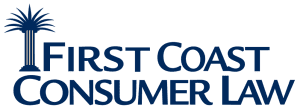Chapter 7 Bankruptcy
When most people think of bankruptcy, they are thinking about the type of bankruptcy relief provided for in chapter 7. A chapter 7 is commonly referred to as a “liquidation” or “straight” bankruptcy. A person who receives a chapter 7 discharge will receive a release from personal liability from most debts and prevent any creditors, debt collectors or other entities from taking future action to collect the discharged debts.
Any individual residing, domiciled, or having property or a place of business in the United States may file a petition to commence a chapter 7 bankruptcy case. However, debtors who are engaged in business, including corporations, partnerships, and sole proprietorships, may prefer to remain in business and avoid liquidation.
A chapter 7 begins with the debtor filing a petition where the individual debtor has resided for the most part of the 180 days preceding the filing of the petition or where the business debtor is organized or has its principal place of business or principal assets.
In addition to filing the petition, the debtor will also be required to file with the bankruptcy court:
- Schedules of assets and liabilities;
- Schedules listing the debtor’s income and expenses;
- A certificate of credit counseling;
- Schedules listing the debtor’s creditors;
- A statement of financial affairs;
- A statement of intention regarding the debtor’s intention with respect to secured property (property which is secured by a creditor’s claim, e.g. a car which has not been paid off yet); and
- A statement of current monthly income and means test.
After the initial documents are filed the debtor’s first, and usually only, appearance at any kind of hearing occurs at the “meeting of creditors.” At the meeting of creditors, the bankruptcy “trustee” (the person who is assigned to administer a debtor’s bankruptcy estate. The trustee is usually, but not always, an attorney), will ask the debtor questions regarding the filing of the bankruptcy.
The trustee will normally inquire as to the debtor’s understanding of the different chapters of bankruptcy, the effect of a bankruptcy discharge, and the truthfulness of the debtor’s documents which have been filed with the court.
The final piece of the chapter 7 puzzle is the granting of the debtor’s discharge. When a debtor is granted a discharge the debtor becomes free of personal liability for those debts which were discharged and receives a “fresh start.”
A chapter 7 is a unique and powerful tool which may be utilized by a debtor experiencing financial difficulties. While a debtor may file bankruptcy on their own, a bankruptcy filing can encounter many problems and pitfalls that an attorney can help navigate and avoid.
